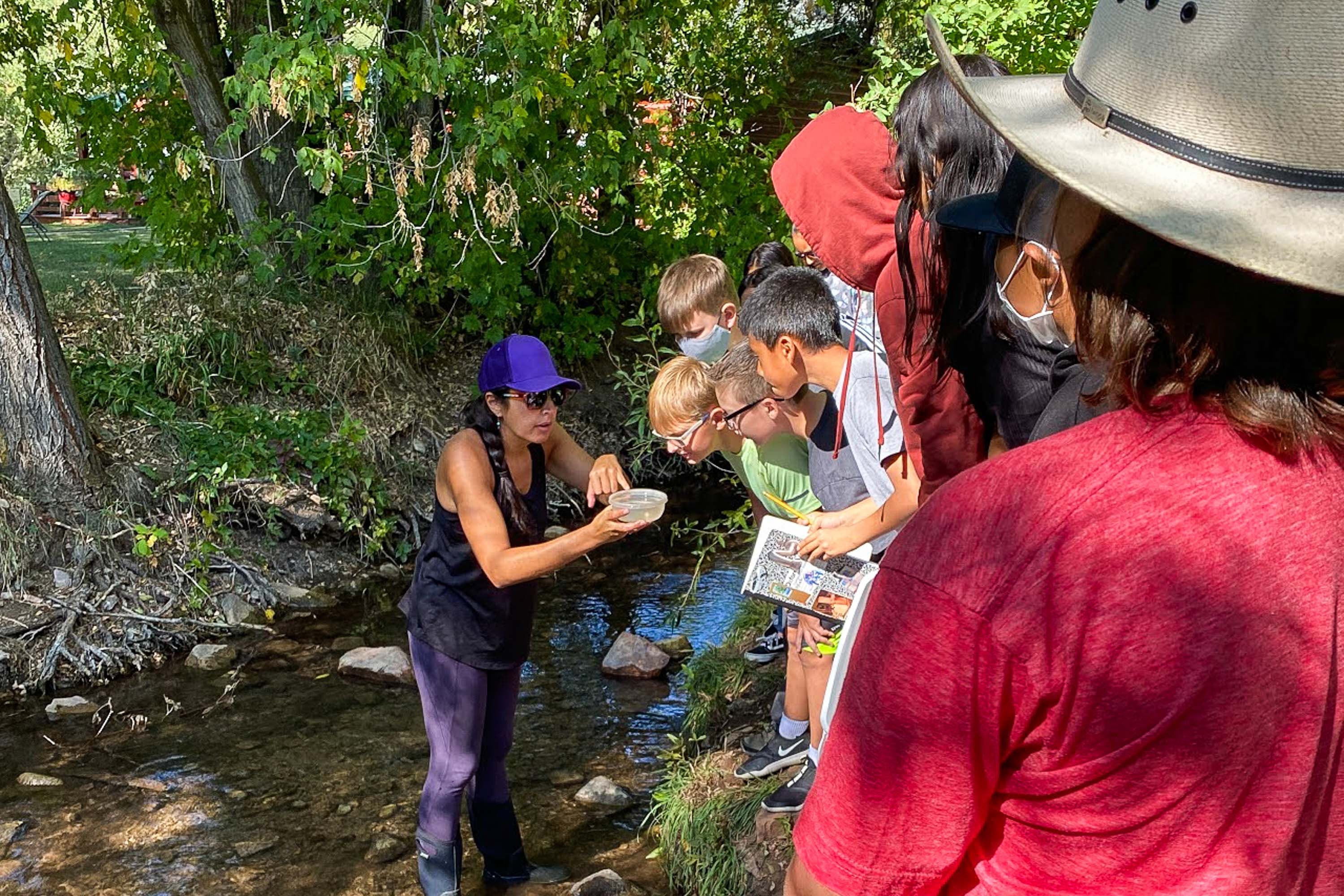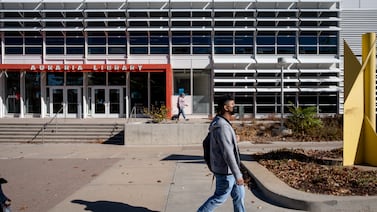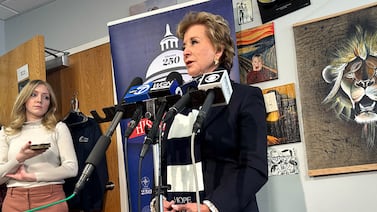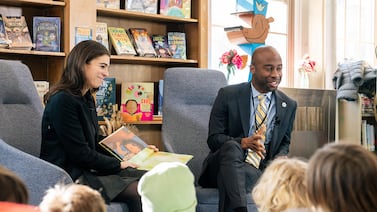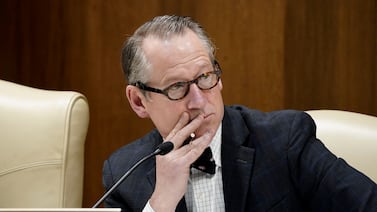Science teacher Autumn Rivera doesn’t believe her sixth graders have to wait till they’re adults to make a difference in the world.
Her students at Glenwood Springs Middle School in western Colorado proved that over the last couple years. As part of a larger grassroots campaign that began in 2019, they sold baked goods, ornaments, and T-shirts to help save a mountain lake in Garfield County from development.
The campaign worked, with Gov. Jared Polis announcing in October plans to make Sweetwater Lake and the surrounding land Colorado’s newest state park.
“When students have the tools and the support they can change the world,” Rivera said.
Rivera, who was recently named Colorado’s 2022 Teacher of the Year, talked to Chalkbeat about why she loves teaching about the Colorado River, what she did after hurting a boy’s feelings, and how she builds students’ background knowledge.
This interview has been lightly edited for length and clarity.
Was there a moment when you decided to become a teacher?
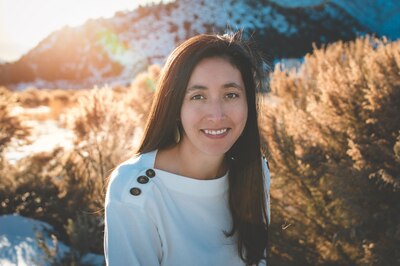
It may sound trite, but I have wanted to be a teacher since I was very young. My favorite activity as a kid was organizing my friends and siblings into group games such as kick the can or capture the flag.
As a teen, I enjoyed learning about the natural world, especially botany, and sharing what I knew with other people. In college, I volunteered with the Boys and Girls Club in Colorado Springs. I read with a fifth grade boy who introduced me to “Harry Potter.” I volunteered at an orphanage in Nairobi, Kenya and in the children’s program at a church in Chihuahua, Mexico. I also worked in Vail for a summer as a naturalist and youth environmental educator for a nonprofit now known as Walking Mountains Science Center. I found joy in working with students and realized I not only wanted to teach, but I wanted to teach science.
What are you doing to meet your students’ needs following two disrupted school years and the trauma COVID brought with it?
The past two years of COVID have been some of the most difficult in my teaching career. I have found it more important than ever to focus on my relationships with students. Asking about weekend plans, soccer games, and remembering sibling and pet names lets students know I care about their interests. Sharing book recommendations, laughing at the same memes, and cheering at sporting events builds shared community. Many people do not realize the impact that going to one game, recital, or performance has on student-teacher rapport. In this time of trauma, being compassionate with each other can only make us stronger.
Tell us about your own experience with school and how it affects your work today.
I grew up outside of Glenwood Springs and Gypsum, Colorado. I attended a small high school where I built strong relationships with my teachers. That desire for relationships drove me to look for a smaller college to attend. Colorado College was the perfect fit as the small class size allowed me to build relationships with my professors. Connections with my teachers and professors shaped who I am as a teacher today. When your students know you care about them, you can help them learn more than they ever thought possible.
Tell us about a favorite lesson to teach. Where did the idea come from?
I love the Colorado River Expedition I taught for many years. Students learned about how human activity affected the Colorado River and its tributaries. Students investigated the river’s health by looking at macroinvertebrates, such as mayflies or caddisflies, exploring watersheds by creating them in the riverbank, and finally, rafting the Colorado River. At the end of the semester, students raised awareness and funds — by selling baked goods, ornaments and t-shirts — to help a local land trust purchase Sweetwater Lake. Two plus years later, Sweetwater Lake became Colorado’s 43rd state park.
Tell us about a memorable time — good or bad — when contact with a student’s family changed your perspective or approach.
I was contacted by a parent at the beginning of a school year a few years ago because her son was not enjoying my class. I wasn’t sure what was going on, and to be honest, I assumed the child was making up a story. I pulled the student out in the hallway the next morning and asked him more about what was going on. As he started talking, my initial reaction was to interrupt, but something told me to stop and just listen. During his story I realized I was completely in the wrong. I had done something to hurt his feelings — I was harsher than I should have been when he came late to class one day — and would have never known if he had not brought it to my attention.
I profusely apologized and asked if we could start again and he agreed. From that simple apology came a student-teacher relationship that lasts until this day. He worked so hard in my class after that and was the only person who came to every single one of my online check-ins during the early days of COVID-19. That interaction taught me not to assume what is happening in a child’s life, but instead stop and listen.
What was your biggest misconception that you initially brought to teaching?
The biggest misconception I brought into teaching during my first years was that every student came to class with the same background knowledge. I remember teaching in Colorado Springs and realizing that so many of my students had never visited Garden of the Gods even though they lived less than 30 minutes from it. It blew my mind and helped me realize it was my job as a teacher to give students experiences that help build background knowledge.
Now, instead of assuming all students know about the 2020 Grizzly Creek Fire and have driven through the Glenwood Canyon to see the impact, I take my students on the river as a class to provide the same background information to all students. It makes our conversations and learning in class that much richer.
What are you reading for enjoyment?
I love to read and have been in the best book club for over 10 years. They always challenge me to read something new and out of my comfort zone. But left to my own devices, you can find me in the young adult fantasy section of the library re-reading “Harry Potter,” “The Hunger Games,” or “The Ranger’s Apprentice,” or looking for the next awesome dystopian adventure.

